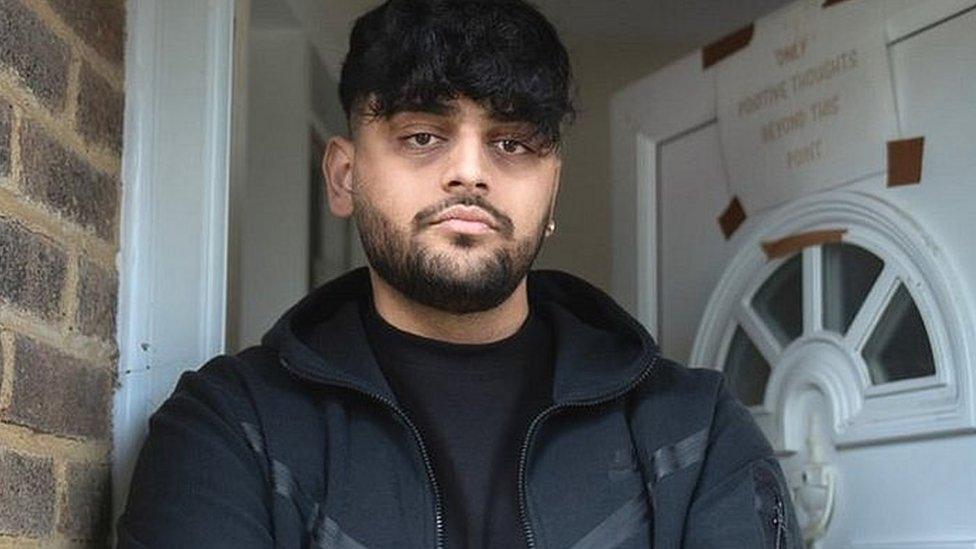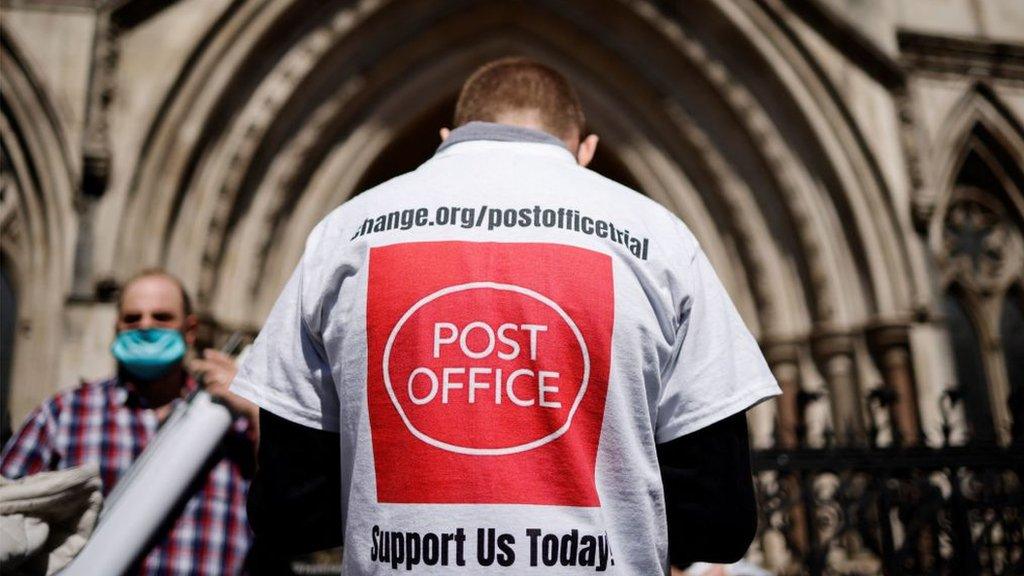Post Office scandal victims' children seek compensation
- Published
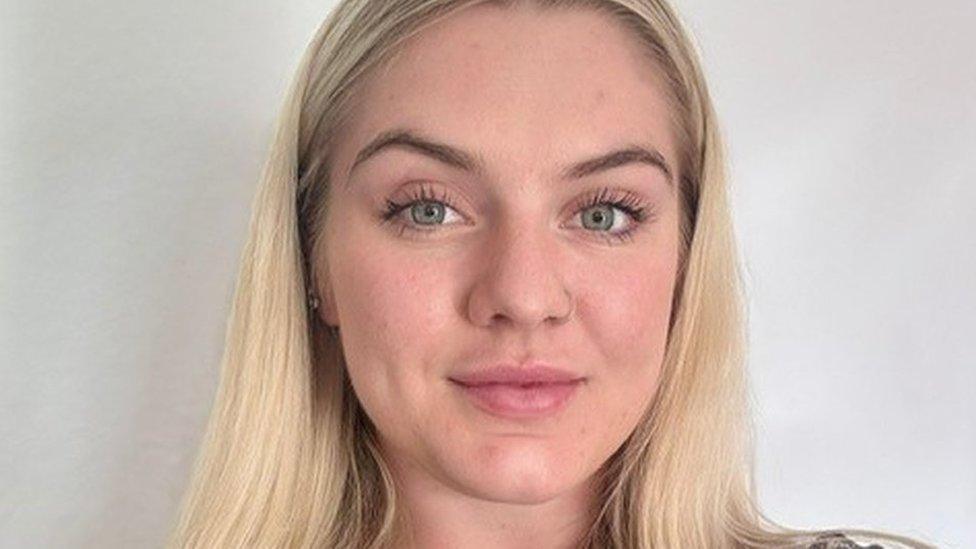
Katie Downey said she was "ripped away" from Hawkshead when her family fled to France
The children of some victims of the Post Office scandal are seeking compensation for the impact their parents' wrongful convictions and financial ruin had on their lives.
The group is led by Katie Downey, whose family fled to France after her father Tony was made bankrupt in the scandal.
She stopped talking for two years after being "ripped away" from home, aged 11.
Ms Downey has requested a meeting with Fujitsu, which provided the faulty Horizon software to the Post Office.
Fujitsu UK boss Paul Patterson has expressed an interest in meeting her.
Ms Downey set up the group - Lost Chances for the Children of Sub-postmasters - as a way to support one another, but also to try to get compensation for how the scandal changed their lives.
While she thinks it is unlikely the government will compensate the children of postmasters, she hopes Fujitsu may be able to offer some support.
It comes after Fujitsu said in January it had a "moral obligation" to compensate Post Office sub-postmasters, and apologised for the impact on families' lives.
Ms Downey wrote to Mr Patterson, who wrote back saying he would like to include her in meetings being arranged with lawyers representing the victims.
The group has more than 40 members at the moment, but eventually could number thousands, Ms Downey said.
She and four of the children of sub-postmasters who are in the group spoke to the BBC about how their lives had been affected by the scandal. They all said it was now time for their voices to be heard.

Katie Downey said she had a "bubbly" childhood in Hawkshead in the Lake District
Ms Downey said at the age of 11 she was "ripped away" from a "bubbly" childhood in Hawkshead in the Lake District when her family fled to France.
After the move she was "severely bullied" at her new French school as she "couldn't communicate at all". Her family life at home "wasn't good", she said.
"My dad was very unstable, very angry. My mum was very upset, dad was very upset," she said.
"I couldn't communicate at school, I couldn't communicate at home, so I just started locking myself in a room, and for two years I wouldn't speak to anyone," she said. "I just became mute."
"I was scared at whether Dad would shout at me, or Mum would cry at me, and as a child I didn't know how to cope with that," she said.
Not speaking was a way of having some control over a chaotic situation, she said.
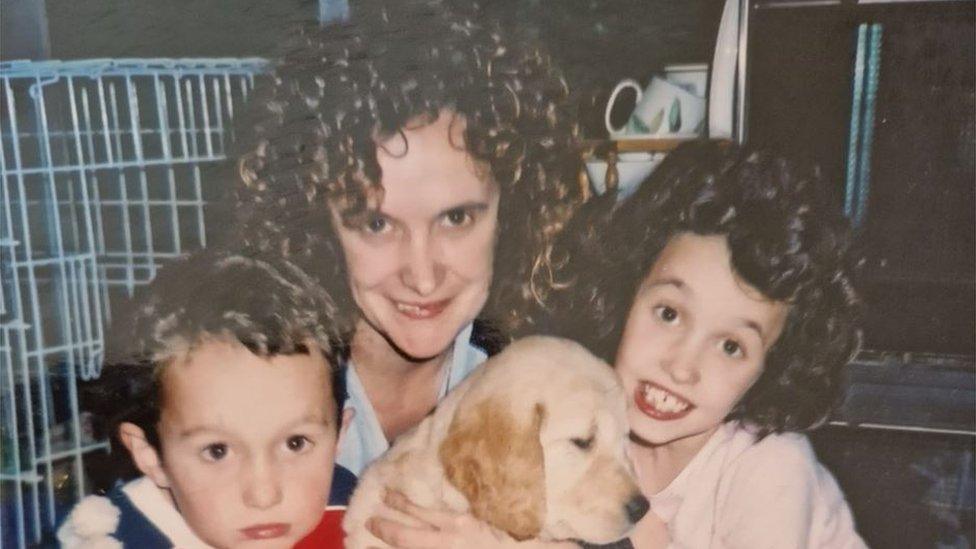
Millie Castleton (right) was eight when her dad was being prosecuted
Millie Castleton's father Lee was a sub-postmaster in Bridlington, East Yorkshire. He went bankrupt after losing a two-year legal battle with the Post Office.
His daughter was eight years old and said she "didn't really understand what was happening".
But when she went to secondary school she said the "bullying really started gearing up", and she got "very defensive" as a teenager, with an "inherent distrust" of people.
She said she developed an eating disorder, which was a way for her to "control just one thing in a life where I just had absolutely no control".
Ms Castleton said she dropped out of university after the first year because she was "very sick" due to the eating disorder, which it has taken years to recover from.
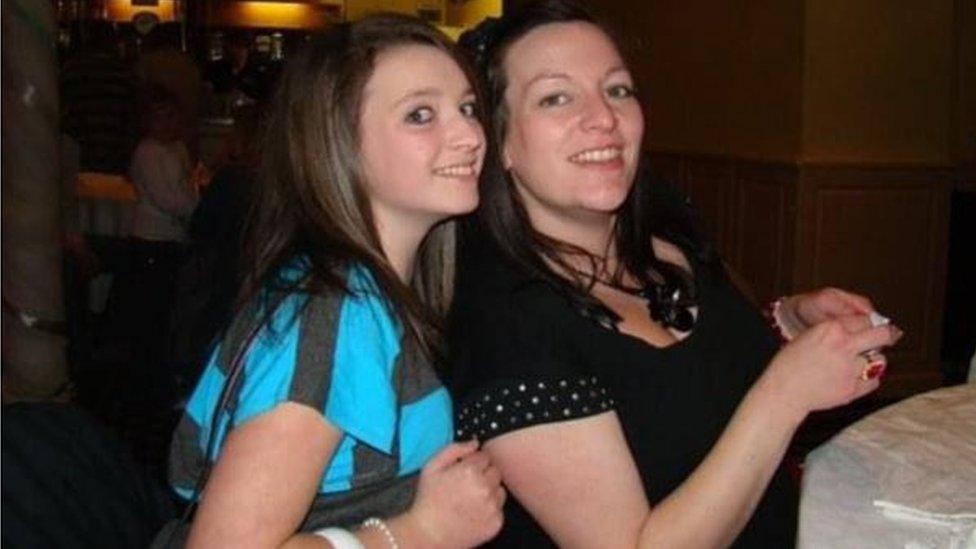
Rebekah Foot got a job in a fish and chip shop and worked through her school holidays
Rebekah Foot's mother Pamela Church ran the Dog and Gun Post Office in Liverpool.
She said many of her family members also worked in Post Offices, and when her mother's cousin was accused of being a thief, they lost touch for many years.
Her mother was also trying to make up shortfalls, and was having panic attacks, but was unable to stay afloat, she said.
The Post Office denied Pamela the opportunity to sell the business, leaving the family bankrupt, with a tarnished reputation, she said.
One of six children, Rebekah started working part time aged 13 to bring in some money, along with her siblings. Whilst she enjoyed it and it helped her afford treats, she said she'd missed out on part of her childhood along the way.
"There's nothing more innocent than a child. But we've all been affected by it... in some way or another," she says.
Deidre Connolly was accused of stealing from her Post Office in Northern Ireland and was told to plead guilty and forced to repay a discrepancy of over £15,000 - which she did not owe. Her family had to re-mortgage their home and were declared bankrupt.
Her son Sean Connolly wanted to be a professional football player, and ended up playing five or six days per week.
He was playing semi-professionally for a local club in Derry.
However, he started having panic attacks, and ended up being unable to play.
"We don't know what could have happened," he said.
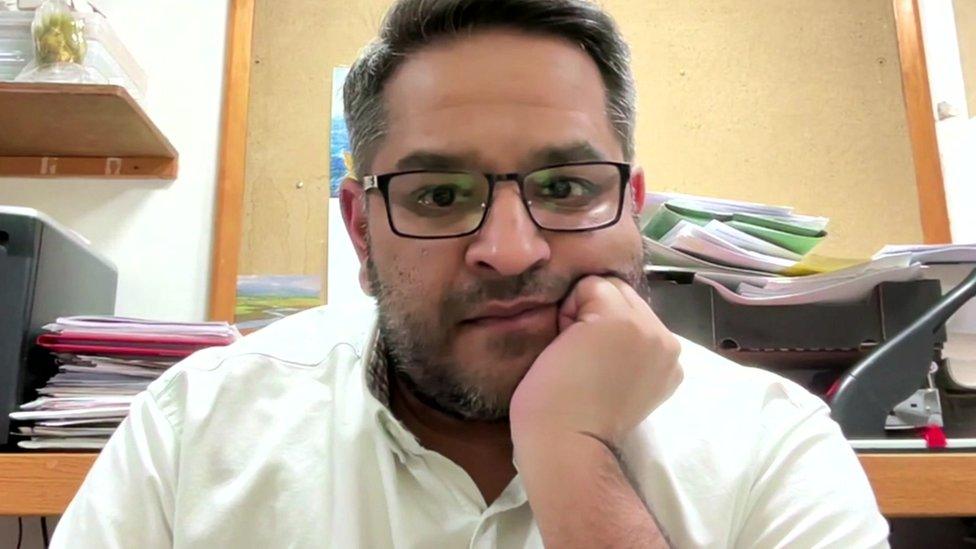
Varchas Patel told the BBC he had to drop out of a degree, but is now completing his studies
Varchas Patel's father Vipin was wrongfully prosecuted for shortfalls at his branch in excess of £75,000 from 2010 to 2011.
His son said he was shunned by his extended family. "They shunned Dad as well, but when they couldn't take it out on Dad, or when they couldn't insult Dad, or be horrible to Dad, I was their next target," he said.
Mr Patel said before the scandal he and his sister had a relatively comfortable upbringing, because his parents "worked extremely hard, seven days a week".
But when his father was prosecuted, Mr Patel helped to support his parents and believes if it had not happened he could have saved £60,000.
"That's hard money that I've earned, but over the years I've had to assist Mum and Dad," he said.
He also had to abandon a degree because he could not afford it, he said.
"It will always be the Post Office to blame for this, not our parents. But it's equally important for our parents and also the wider public to understand how it has affected the children," he says.
Legal questions
Children of sub-postmasters might find it difficult to claim compensation through the courts, Exeter University legal ethics professor Richard Moorhead said.
The professor, who has written widely on the Horizon scandal, said: "Legal responsibility tends to concentrate on those most directly affected by the harm.
"Children would ordinarily be treated as too 'remote' from the harms caused because it was not inflicted on them directly," he said.
If the Treasury was to start paying out to the children of sub-postmasters, that would "increase the cost of compensation significantly", he said.
However, he said this issue has yet to be considered by judicial assessors, "who might take a different view" given their emphasis on justice as well as legal precedent.
"Ultimately, the question is a political one not a legal one," he said. "If the government or Fujitsu can be persuaded justice requires it, then it can happen."

Are you affected by the issues raised in this story? Share your experiences by emailing haveyoursay@bbc.co.uk, external.
Please include a contact number if you are willing to speak to a BBC journalist. You can also get in touch in the following ways:
WhatsApp: +44 7756 165803
Tweet: @BBC_HaveYourSay, external
Please read our terms & conditions and privacy policy
If you are reading this page and can't see the form you will need to visit the mobile version of the BBC website to submit your question or comment or you can email us at HaveYourSay@bbc.co.uk, external. Please include your name, age and location with any submission.
Related topics
- Published13 March 2024

- Published27 January 2024
